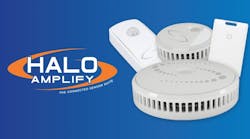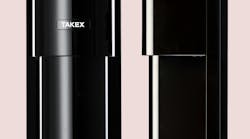HR 3632, better known as the "Secure America's Homes and Businesses Act", could be a major windfall for the security industry.
Proposed by Republican Ohio House member Steven LaTourette, HR 3632 proposes to provide tax breaks to homes with electronic security. And it's no small tax breaks that are proposed. Up to $5,000 in tax breaks are proposed for residential customers, and up to $50,000 in commercial tax deductions annually.
According to an NBFAA report on the bill, included devices are "electronic fire/life safety, intrusion detection alarms or burglar alarms, video surveillance cameras and equipment, access controls including biometrics and automated fingerprint identification systems and any components, wiring, system displays, terminals or other equipment to install these devises."
Taxpayers would find themselves not only benefited if these systems are installed at homes or offices, but can also include parking lots, or any facility used as a dwelling. LaTourette's bill, if passed as proposed (a situation highly unlikely for any Washington legislation), would be effective on Dec. 31, 2005.
As it stands now, LaTourette's bill, which was submitted on July 29, would amend the IRS code from 1986, but it's not a shoe-in. The bill has been referred to the Committee on Ways and Means, and now begins the laborious task of committee review.
Financially, the bill would mean a one-time windfall for most home owners, applicable in the year that the system is installed. With an annual monitoring cost of $30 (annual of $360) and the low cost of residential alarm systems, homeowners stand to profit by at least $4,000 in tax deductions. For businesses it could be even more, depending on the cost of the installed system.
LaTourette's bill, which is notably brief in its details, does take into account the differences in quality of security systems. In regards to whether a business that simply puts in an alarm keypad with door and window position sensors obtain the same deduction amount as a business that installs a state-of-the-art intrusion detection system with multiple surveillance cameras and a high-end access control system -- LaTourette's bill is clear that the deduction applies to the amount spent on the alarm sytem. While LaTourette's bill doesn't detail how the IRS could confirm that an alarm system has been installed, the system is likely assumed to use standard purchase receipts like the rest of tax filing. As it stands now, the LaTourette bill doesn't set up any standards for a reporting system to ensure that deductions are not being taken improperly.
The bill follows soon after the NBFAA's hiring, in January, of lobbyist firm Chwat & Company to encourage legislation benefiting the industry. And with the placement of HR 3632 into debate by the 109th Congress, NBFAA director Merlin Guilbeau says, "The NBFAA and the security industry are already seeing the impact that this [lobbying] partnership is having."
Learn More:
To track this bill on your own, visit http://thomas.loc.gov/ and enter "HR 3632".

